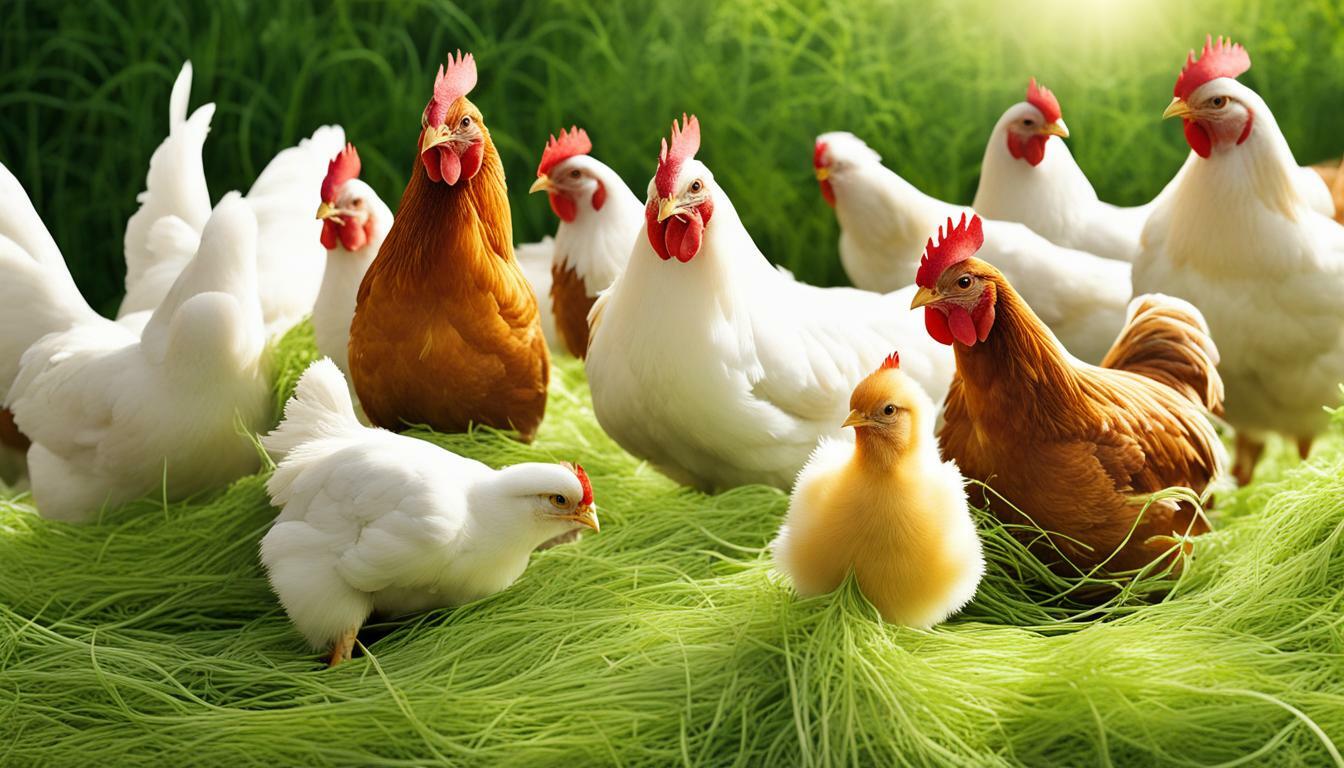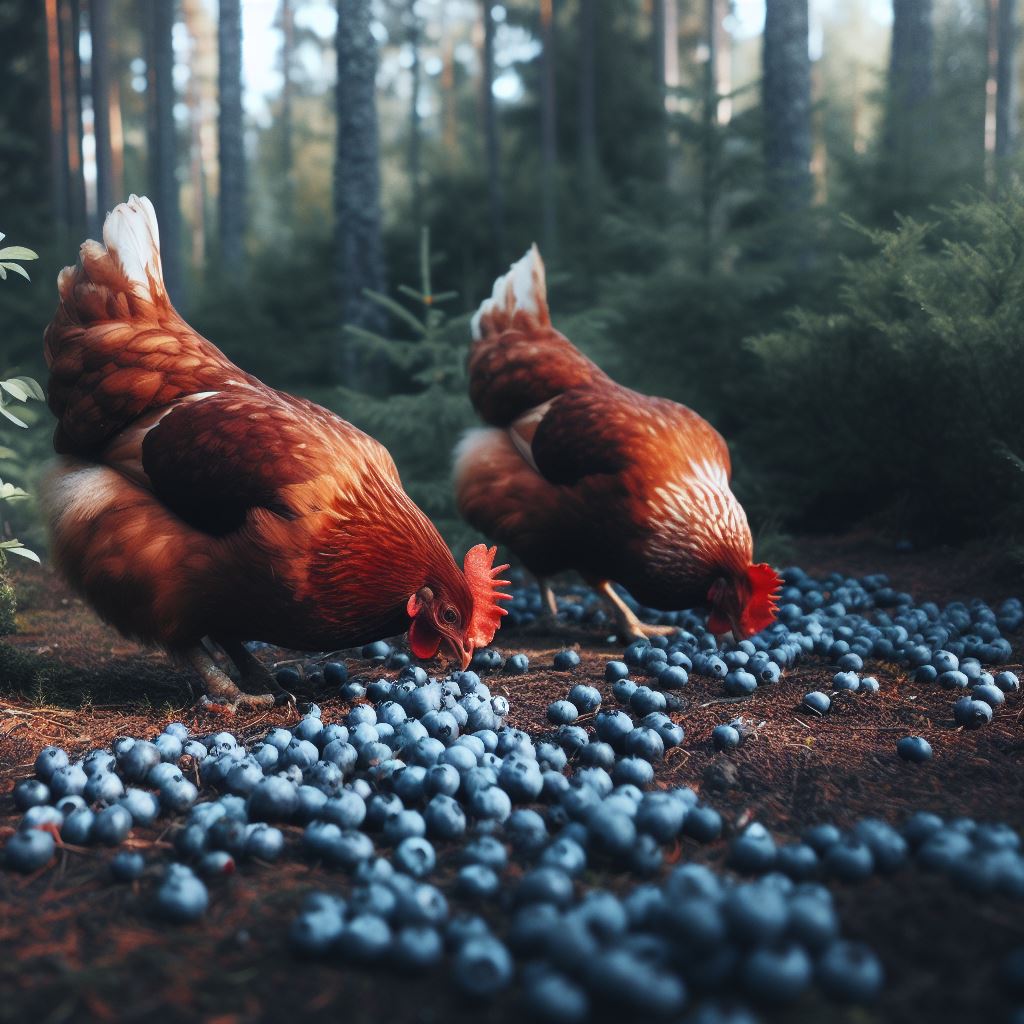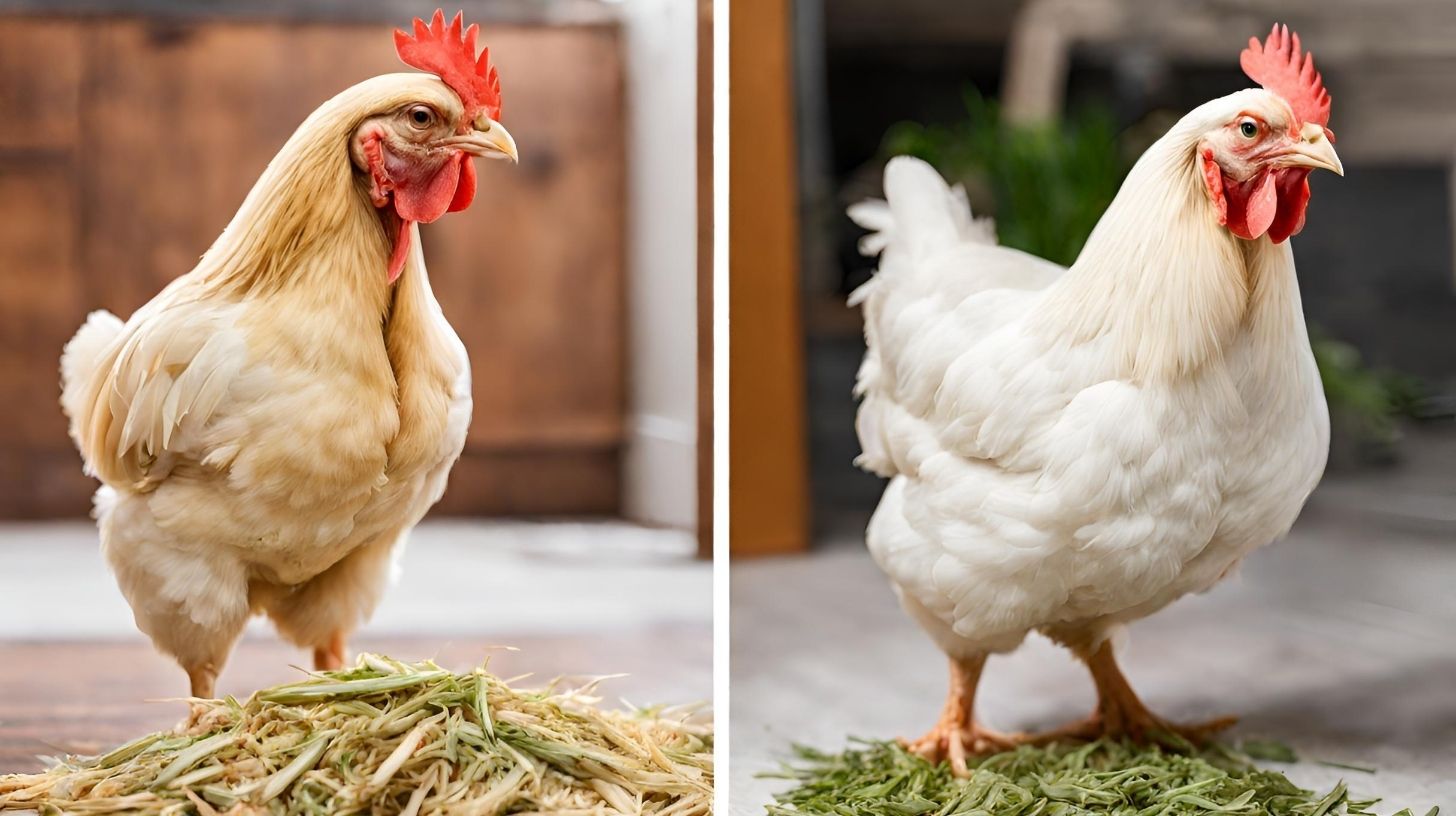Why Do Chickens Rub Their Beaks on The Ground?

Table of content:
- What Does Beak Rubbing Mean for Chickens?
- When and Where Chickens Rub Their Beaks
- Benefits of Beak Grinding for Chickens
- Is Too Much Beak Rubbing a Cause for Concern?
- 10 Tips for Beak Health and Enrichment
- FAQs About Chicken Beak Rubbing
- Should I discourage chickens from rubbing their beaks?
- Can rubbing damage my chickens’ beaks?
- Do roosters rub their beaks more than hens?
- Should I add a pumice stone for chickens to rub on?
- How can I stop chickens from rubbing on painted walls or furniture?
- What is the brown substance on surfaces where chickens rub?
- Is beak rubbing a sign of boredom in chickens?
- How can I stop chickens from rubbing on each other?
- Do chickens rub their beaks more at certain ages?
- Can parasites cause chickens to rub their beaks raw?
- Final Thoughts
Chickens rubbing their beaks on the ground is a common behavior that often makes chicken owners curious. As you watch your flock peck, scratch, and wipe their beaks in the dirt or on objects, you may wonder why they engage in this peculiar habit.
Understanding the purpose behind chickens rubbing their beaks can provide insight into your flock’s health and natural chicken mannerisms. There are several theories as to why chickens perform this instinctive beak grinding, with evidence to support a variety of reasons.
What Does Beak Rubbing Mean for Chickens?
Chickens use their beaks for many purposes. Their beaks serve as tools for eating, grooming, exploring, defense, and communication. Chickens have extra sensory receptors in their beaks that allow them to taste, feel, and interact with their environment.
By rubbing their beaks on surfaces, chickens transfer scents, oils, and particles from one place to another. They are gathering tactile information about their surroundings. The behavior may also spread pheromones from glands near their mouths to communicate information.
Here are some of the most common speculative theories for why chickens rub their beaks on the ground:
Sharpening Their Beaks
One of the most popular theories is that chickens rub and grind their beaks on rough surfaces to sharpen them. The upper and lower portions of a chicken’s beak never stop growing.
Beak rubbing may help condition their beaks and naturally file them down to a more precise point. This can keep their beak from becoming overgrown. Chickens use their sharpened beaks for purposes like breaking open seeds, precision pecking in the dirt, grooming, and defending themselves from predators.
Exploring and Foraging
Chickens have a strong natural drive to forage and explore their environment using their beak. By rubbing their beak in the dirt or on objects, chickens can pick up and taste particles to detect food sources or mineral deposits.
This foraging and probing allows chickens to assess potential food, which supplements their main diet. A chicken may discover worms, seeds, or greens through beak grinding. It allows them to search for edible tidbits.
Cleaning Their Beaks
Chickens wipe and brush their beaks with materials like soil, grass, or litter to remove debris. By grinding their beaks, chickens can clean off substances like dirt, food particles, parasites, or secretions.
Keeping their beak free of buildup helps ensure chickens can effectively use this essential tool for feeding, grooming, and interacting with their environment.
Stimulation and Comfort
The act of beak rubbing may also simply feel good or satisfying for chickens. The texture and motion stimulation it provides can comfort chickens the way cats and dogs appreciate having their chins or cheeks scratched.
Chickens have nerve endings in their beaks, so the tactile sensation likely has a pleasurable and calming effect. Some compare it to a person rubbing their fingertips together absentmindedly. The activity provides mental and physical stimulation.
Territorial Marking
By grinding their beaks on surfaces, chickens transfer scents and oils from glands near their mouths. This may allow them to mark territory and send signals to other chickens in their flock.
The beak secretions communicate information to other chickens about dominance, mating availability, and more. Beak rubbing can therefore help establish social order and relationships within the flock.
Investigating and Manipulating Items
Chickens are innately curious animals, and their beaks allow them to pick up and examine anything that catches their attention. Chickens may rub their beaks on items simply to explore the texture, shape, and scent.
This allows them to actively engage with and manipulate their surroundings. Rubbing beaks on surfaces and objects provides chickens enrichment and sensory input to investigate their environment.
Ingesting Minerals and Grit
It’s also possible chickens rub their beaks in dirt and soil as a way to ingest essential minerals. Grit like sand, pebbles, or flakes in the earth aids chickens’ digestion and provides calcium. By grinding their beaks, chickens may be able to accumulate and consume small amounts of grit.
However, most chickens have adequate access to insoluble grit in their feed or supplements. Beak rubbing is unlikely to be a chicken’s sole source of essential minerals, though it may supplement their intake.
Establishing Dominance
Dominant chickens will sometimes grind their beaks on subordinate chickens. By rubbing their beaks forcefully on other chickens, the dominant individuals are asserting their status and rank in the pecking order.
It also spreads the dominant chicken’s scent on the other birds to signal authority. This behavior allows flock hierarchy and order to be established and maintained.
When and Where Chickens Rub Their Beaks
Chickens engage in beak grinding behavior in many situations:
- After eating – Chickens will often wipe and rub their beaks in the dirt or on objects after eating. This may remove food particles and debris from their beak.
- While dust bathing – Rolling around in dirt loosens parasites and absorbs excess oil on a chicken’s skin. They may also grind their beak in the dust bathing substrate.
- On wake up – Chickens including roosters may wipe their beaks upon waking in the morning. This freshens their beak.
- After drinking – Beak rubbing motions can remove water droplets from their beak after drinking.
- During exploration – Chickens rub their beaks instinctively while foraging and investigating their surroundings.
- On stationary items – Beak wiping most often occurs on surfaces like the ground, walls, tree stumps, rocks, and stationary feeders or waterers.
- On moving items – Chickens may also rub on moving objects like boots, hands, or brushes during handling and socializing.
- On other chickens – Dominant chickens will grind on subordinate birds to establish pecking order. Hens may also gently preen their chicks.
- On eggs – Broody hens roll and turn their eggs using their beak during incubation.
Benefits of Beak Grinding for Chickens
Though the reasons are still largely speculative, beak grinding likely provides multiple benefits and purposes for chickens:
- Keeps their beak in optimal condition for eating, grooming, and defense
- Allows sensory exploration and investigation of surroundings
- Removes debris and cleans their beak
- Spreads helpful pheromones for communication
- Provides comfort and contentment through motion
- May supplement their mineral intake through grit
- Establishes social order and hierarchy in the flock
- Satisfies natural foraging instincts and curiosity
Overall, the ability to interact with and manipulate their environment using their beak is extremely important to chickens. Rubbing their beak allows chickens to fully engage with their surroundings using their most useful appendage.
Is Too Much Beak Rubbing a Cause for Concern?
Healthy chickens spend a significant amount of time rubbing their beaks as part of their normal routine. However, excessive grinding and wiping may indicate an underlying issue requiring attention:
External Parasites
Mites, lice, or other external parasites can irritate a chicken’s beak and face. Excessive beak rubbing may reflect their attempt to alleviate pest-related discomfort. Ensure your coop is thoroughly cleaned and chickens are treated if necessary.
Respiratory Issues
Illnesses like infectious bronchitis or mycoplasmosis can cause nasal discharge in chickens. They may grind their beak to clear irritating secretions from their nostrils. Address any apparent respiratory symptoms promptly.
Nutritional Deficiencies
Chickens with certain vitamin or mineral deficiencies may show increased beak rubbing and eating of non-food items. Evaluate their diet and supplement if they lack key nutrients.
Behavioral Problems
Chickens also beak grind when bored. Ensure they have sufficient space, enrichment, and foraging opportunities. Overcrowding, stress, or inadequate facilities can lead to maladaptive beak overuse.
Foreign Matter
Debris stuck in a chicken’s nostrils or beak can spark extensive face rubbing. Check for any obstructions and clear them gently if found.
Monitor any sudden increase in beak grinding closely for other signs of illness or distress. Though beak wiping is normal chicken behavior, excessive rubbing may warrant a veterinary visit to address the underlying cause.
10 Tips for Beak Health and Enrichment
Follow these tips to support normal beak rubbing activity while also protecting your chickens’ beak health:
- Provide a nutritious diet – Ensure their feed has proper protein and nutrients to support beak growth.
- Supplement with grit – Chickens need insoluble grit like sand or oyster shell to grind food in their gizzard.
- Add foraging opportunities – Scatter treats or greens to encourage natural foraging behavior.
- Offer dust bath access – Dust bathing helps remove parasites and absorb oil that can accumulate on their beak and face.
- Install rubbing posts – Posts or surfaces for rubbing help satisfy this natural urge.
- Check for overgrown beaks – Look for any curvature or excessive upper beak overgrowth which may require trimming by a vet.
- Investigate increased rubbing – Monitor for any spike in beak grinding which could indicate a health issue.
- Control parasites – Prevent external parasites that can lead to excessive rubbing due to irritation.
- Prevent debris buildup – Gently clean chickens’ beaks and nostrils to avoid obstructing particles.
- Provide enrichment – Keep chickens engaged and stimulated with varied textures, surfaces, and objects to explore.
By supporting natural beak rubbing while also monitoring for any concerning changes in frequency, you can ensure this important chicken behavior remains healthy and beneficial.
FAQs About Chicken Beak Rubbing
Many chicken owners have additional questions about understanding beak wiping and grinding in chickens:
Should I discourage chickens from rubbing their beaks?
No, beak rubbing is a totally normal and healthy chicken behavior. It allows them to keep their beaks in top shape, clean them, explore, socialize, and engage with their environment. This instinctive habit should not be deterred.
Can rubbing damage my chickens’ beaks?
When done moderately, rubbing does not harm chicken beaks. In fact, it helps condition them. However, chickens with nutritional deficiencies may grind their beaks excessively out of discomfort, which can lead to over-wear or scratches. Address any underlying issues leading chickens to over-rub.
Do roosters rub their beaks more than hens?
Roosters do exhibit higher levels of beak grinding as they use it to establish dominance and territorial marking. However, hens also regularly rub their beaks as part of foraging, cleaning, and exploring.
Should I add a pumice stone for chickens to rub on?
Some owners do provide pumice blocks or stones for chickens to rub against. This can help satisfy the urge while minimizing damage to wood surfaces. However, simply providing varied textures like stone, cement, and dirt allows options for safe beak grinding.
How can I stop chickens from rubbing on painted walls or furniture?
Training chickens to avoid undesirable rubbing spots takes patience. Provide plenty of preferred rubbing surfaces. Use gentle herding away from off-limits areas. In some cases, briefly blocking access until they establish better habits can be effective.
What is the brown substance on surfaces where chickens rub?
The substance left behind on rubbed surfaces is the oil and secretions from glands near the chicken’s mouth. The stain results from the beak grinding action transferring the colored, fatty material. Gently cleaning rubbed areas can reduce residual discoloration.
Is beak rubbing a sign of boredom in chickens?
Frequent, obsessive beak grinding can indicate boredom, stress, or inadequate stimulation. Ensure chickens have sufficient space, enrichment through toys and varied textures, and opportunities to forage and dust bathe. This will satisfy their needs and minimize boredom.
How can I stop chickens from rubbing on each other?
For dominant chickens rubbing on subordinates, provide ample space and roosts to allow lower birds to evade unwanted beak grinding. Having multiple feeders and waterers prevents crowding. Reduce stress through proper flock size and enrichment. Gentle handling can also minimize aggressive rubbing.
Do chickens rub their beaks more at certain ages?
Chicks and juveniles will rub their beaks frequently as they explore the world and acclimate to new textures. Hens also increase beak grinding before egg laying to deposit oils. Otherwise, beak rubbing remains consistent throughout a chicken’s life.
Can parasites cause chickens to rub their beaks raw?
Yes, mites and lice can lead to irritated skin and discomfort that prompts extensive rubbing. A veterinarian can recommend effective parasiticides. Ensure their coop is cleaned frequently to prevent reinfestation once treated. Addressing the underlying issue will stop any related obsessive rubbing.
Final Thoughts
When you observe chickens grinding their beaks on the ground, seemingly trying to burrow through solid surfaces, it can appear peculiar. However, this innate behavior allows chickens to groom, explore, socialize, and interact using their specialized beak which is full of sensitive nerve endings.
Beak wiping benefits chicken health and contentment when performed moderately. While too much rubbing can indicate issues needing resolution, the behavior itself is completely natural for chickens. Satisfying basic needs like adequate diet, enrichment, cleanliness, and space will allow rubbing to remain a healthy part of your flock’s daily chicken life.
Welcome. I’m Adreena Shanum, the proud owner of this website, and I am incredibly passionate about animals, especially poultry. I founded adreenapets.com as a labor of love, stemming from my desire to share my knowledge and experiences with poultry enthusiasts worldwide.




